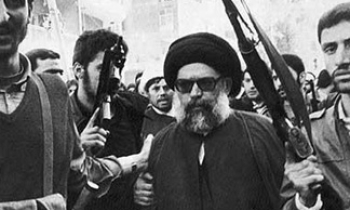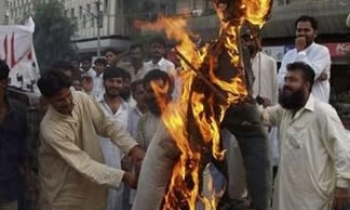Journalists in Colombia are increasingly coming under pressure for their work. Yet another journalist was forced to flee on February 8 – the third journalist forced to flee the place of work in the face of death threats this year alone.

Antonio Sánchez Sánchez of the daily El Meridiano de Córdoba was forced to leave the north-western city of MonterÃa because of death threats. "In four days, the city of MonterÃa has seen two serious press freedom violations. Journalist Gustavo Rojas Gabalo, who was severely injured in a shooting on February 4, is still in a serious condition. Antonio Sánchez Sánchez's departure follows that of two other journalists forced into exile this year," Reporters sans Frontières (RSF) said.
"The future of the profession in Colombia will be seriously jeopardised if this forced exodus goes on. Once again we urge the Colombian authorities to guarantee the safety of journalists, particularly in the conflict zones," a RSF statement said. Sánchez Sánchez also received death threats in 2004 after writing several exposés about corruption and administrative irregularities.
His lawyer, MarÃa Milene Andrade, said the journalist began receiving death threats over the phone after one of his articles appeared in the El Meridiano de Córdoba, revealing there had been a secret guerrilla incursion into the Rusia regiment, in the Valencia district. This was denied by local authorities but confirmed by President Alvaro Uribe.
Earlier, after denouncing the threats to which she was being subjected, journalist Olga Cecilia Vega fled Florencia, the capital of Caquetá department in southern Colombia, on February 1. In October 2005, she had published an interview in the US newspaper The New Herald, with Raúl Reyes, a leader of the Revolutionary Armed Forces of Colombia (Fuerzas Armadas Revolucionarias de Colombia, FARC) guerrilla group.
A release issued by Fundación para la Libertad de Prensa (FLIP) and International Freedom of Expression Exchange (IFEX) said, on January 28, two unidentified men entered the administrative offices of the hotel in which Vega was then staying, and warned the manager: "Tell this guerrilla that she has 48 hours to get out of Florencia." Days before, the hotel had received various phone calls expressing similar sentiments, including a threat to bomb the hotel if the journalist did not leave the city.

During this same period, two unidentified men had attempted to visit Vega at her current place of work, the Caquetá Departmental Health Institute (Instituto Departamental de Salud de Caquetá). Security personnel from the office confirmed with the journalist that the men had waited for her and asked for her repeatedly.
Vega had covered for RCN Radio the peace process undertaken with the FARC in the demilitarised zone of San Vicente del Caguán under the government of Andrés Pastrana, president from 1998 to 2002. She believes that the state security apparatus began to keep her under surveillance at that time.
In 2002, she was the victim of two attempts on her life in Florencia and Neiva, which forced her to flee the country. Upon her return, she tried to resume her work as a journalist and assumed the management of a radio news programme in Neiva. The day after her first broadcast, the doors of the station were painted with the acronym "AUC" ("Autodefensas Unidas de Colombia," meaning "United Self-defence Groups of Colombia", the coalition of extreme right-wing paramilitary organisations). Later, various phone calls were made to the station, delivering the message: "You S.O.B., we're going to burn your ass." Vega again fled the country.
After various months in exile, Vega decided to return to Colombia and she began to work for the Neiva Departmental Health Secretariat (SecretarÃa Departamental de Salud de Neiva). She was soon informed that some people had been making inquiries about her in the office, and had even paid for information about where she was staying.
At the end of March 2005, two men were captured with firearms and a video camera. Vega was called in to identify the men and to see the confiscated video tape, which contained extensive footage of her movements, shot in January, February and March 2004. Despite this damning evidence, a few days later the men were released. Vega informed FLIP that the authorities in Neiva told her that these persons were clearly "collecting intelligence on her". Despite these facts, the authorities took no punitive action and returned the confiscated videos to the released men.
According to the journalist, since the publication of her interview with the guerrilla leader in October 2005, she has been followed by state security agents, who are apparently operating under the hypothesis that she is a romantic interest of Raul Reyes, and thus a key to capturing him.

According to the information given to FLIP, Vega's situation is worrisome; especially given that the evidence points to the involvement of the state security apparatus in her persecution. "Journalists must not be stigmatised because of the sources they consult in the researching of a story. In a democracy, persons in public office should be on the front lines of the struggle to defend press freedom," FLIP/IFEX said.
"We condemn this pattern of intimidation against provincial journalists," Committee to Protect Journalists (CPJ) Executive Director Ann Cooper said. "We urge Colombian authorities to provide adequate safety guarantees so that journalists can report the news freely and without fear of reprisal."
FLIP has urged the National Police, Administrative Security Department (Departamento Administrativo de Seguridad, DAS), and the other state security and intelligence organs to investigate whether or not any public employees from these bodies have been involved in the threats and surveillance to which Vega has been subjected.









